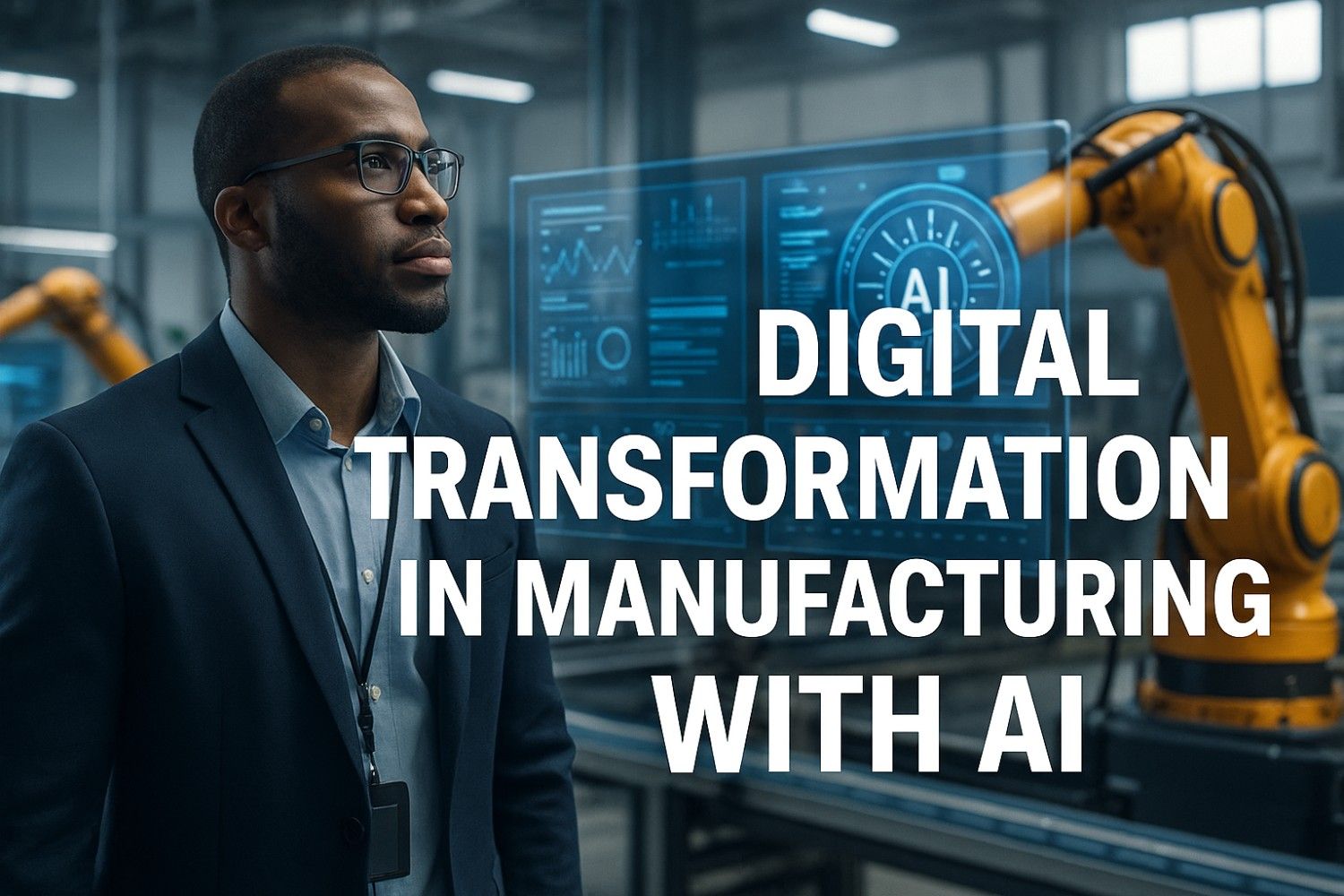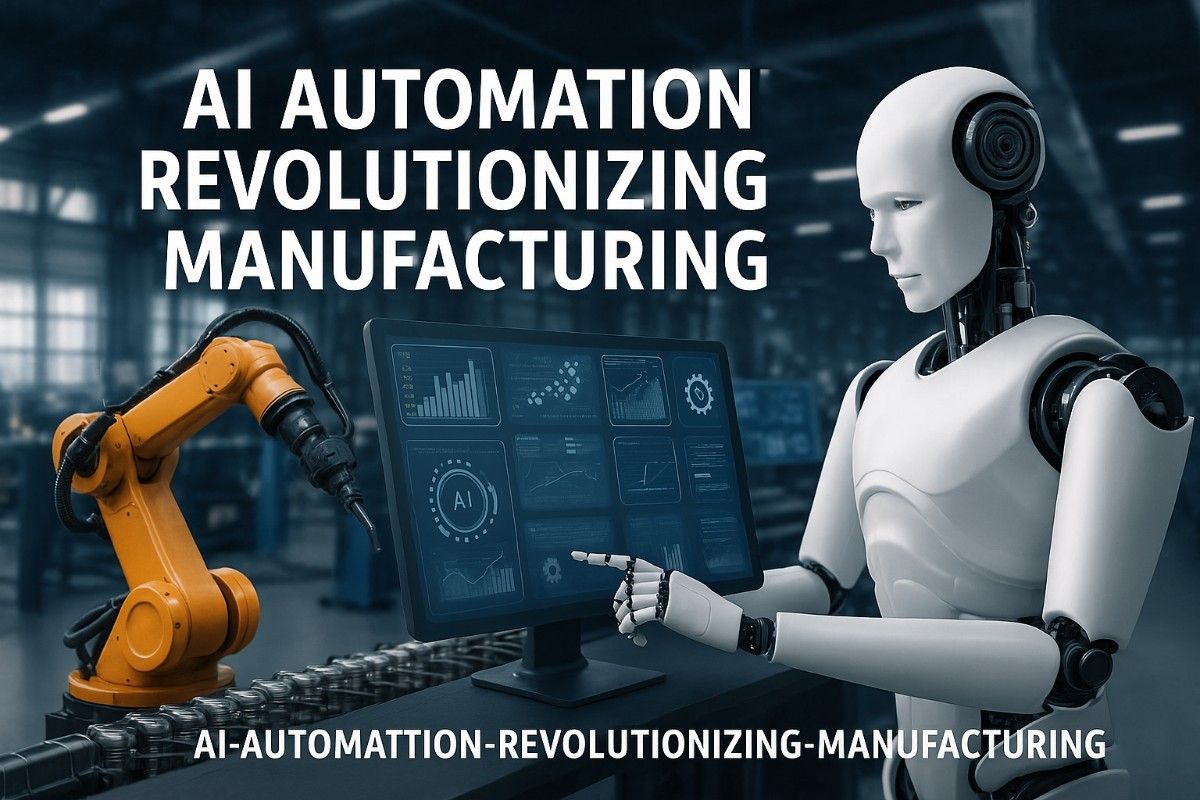The convergence of artificial intelligence with Industry 4.0 technologies is catalyzing a manufacturing revolution that fundamentally transforms how products are designed, produced, and delivered. AI-driven Industry 4.0 represents the seamless integration of machine learning, IoT sensors, digital twins, robotics, and cloud computing creating intelligent, adaptive manufacturing ecosystems that optimize themselves continuously while responding dynamically to market demands, operational challenges, and strategic opportunities.
Manufacturers implementing AI-driven Industry 4.0 solutions through platforms like iFactoryapp are achieving transformative results including 40-55% efficiency improvements, 30-45% cost reductions, 35-50% quality enhancements, and 25-40% increases in innovation speed. These comprehensive capabilities create sustainable competitive advantages by combining operational excellence with strategic agility enabling rapid adaptation to evolving customer requirements, market dynamics, and technological possibilities that define success in modern manufacturing.
Global Industry 4.0 market value by 2030
Of manufacturers investing in Industry 4.0
Average productivity improvement achieved
Faster time-to-market for new products
What is AI-Driven Industry 4.0?: Revolutionary Innovations Explained
AI-driven Industry 4.0 represents the fourth industrial revolution where cyber-physical systems, intelligent automation, and data-driven decision-making converge to create self-optimizing manufacturing operations. This transformation integrates artificial intelligence as the cognitive layer that perceives operational conditions through comprehensive IoT sensor networks, reasons about optimal strategies using advanced analytics and machine learning, learns continuously from accumulated operational experience, and acts autonomously to implement improvements while adapting to changing circumstances.
The innovations extend far beyond incremental improvements to existing processes. Industry 4.0 fundamentally reimagines manufacturing through intelligent systems that communicate seamlessly across equipment, processes, supply chains, and business functions, creating interconnected ecosystems where data flows freely enabling real-time optimization, coordination, and innovation. AI serves as the intelligence enabling autonomous operations, predictive capabilities, adaptive responses, and continuous learning that distinguish Industry 4.0 from traditional manufacturing approaches limited by human cognitive constraints and static automation rules.
Intelligent Automation
AI-powered robotics, cobots, and autonomous systems perform complex manufacturing tasks with human-like perception and decision-making while adapting to variations, learning from experience, and coordinating seamlessly with human workers creating flexible, efficient production operations.
Digital Twin Technology
Virtual replicas of physical manufacturing assets, processes, and systems enable risk-free experimentation, predictive optimization, operator training, and scenario analysis supporting strategic decision-making and continuous improvement without disrupting actual operations.
IoT Connectivity
Comprehensive sensor networks, industrial communication protocols, and cloud platforms create fully connected manufacturing environments where equipment, materials, products, and systems exchange information continuously enabling real-time visibility, coordination, and optimization.
Core Industry 4.0 Innovation Technologies
Multiple converging technologies create the foundation for AI-driven Industry 4.0 manufacturing. Artificial Intelligence and Machine Learning deliver cognitive capabilities through predictive analytics forecasting equipment failures and quality issues, optimization algorithms discovering ideal process parameters, computer vision enabling automated inspection and process monitoring, natural language processing facilitating human-machine interaction, and reinforcement learning discovering novel strategies through simulated experimentation and continuous adaptation.
Internet of Things (IoT) provides connectivity infrastructure with industrial sensors capturing comprehensive operational data from equipment, processes, materials, and environmental conditions. Edge computing devices process data locally enabling real-time responses, while cloud platforms aggregate information across facilities supporting enterprise-wide analytics and coordination. Digital Twins create virtual environments mirroring physical manufacturing systems enabling predictive optimization, operator training, virtual commissioning of new equipment, and scenario analysis for strategic planning without risk to actual operations.
Advanced Robotics combined with AI enables flexible automation performing complex tasks requiring perception, decision-making, and adaptation previously possible only through human workers. Collaborative robots work safely alongside humans combining robotic precision with human judgment. Additive Manufacturing integrated with AI enables rapid prototyping, customized production, and innovative designs impossible through traditional manufacturing methods while optimizing material usage and reducing waste.
Cloud and Edge Computing provide scalable infrastructure for data storage, advanced analytics, and collaborative access across geographically distributed operations. 5G Connectivity enables ultra-low latency communication supporting real-time coordination among autonomous systems and mobile equipment. Blockchain Technology provides transparent, immutable tracking of materials, products, and transactions across complex supply chains ensuring quality, authenticity, and compliance. Augmented and Virtual Reality support operator training, maintenance guidance, remote assistance, and design visualization enhancing workforce capabilities and reducing errors.
Why It Matters: Securing Competitive Edge Through Innovation
AI-driven Industry 4.0 adoption has evolved from strategic opportunity to business imperative as manufacturers face intensifying competitive pressures, evolving customer expectations, and operational challenges that traditional approaches cannot address effectively. Market dynamics demand capabilities that only intelligent, connected manufacturing can deliver including mass customization at scale serving diverse customer preferences without cost penalties, rapid innovation introducing new products faster than competitors, operational agility adapting quickly to demand fluctuations and market disruptions, and sustainability performance meeting regulatory requirements and stakeholder expectations.
Global competition intensifies as technology-advanced manufacturers achieve superior cost structures, quality consistency, innovation speed, and customer responsiveness creating performance gaps that widen continuously as Industry 4.0 capabilities mature. Organizations without these capabilities face escalating competitive disadvantages losing market share to digitally transformed competitors offering better products, faster delivery, competitive pricing, and superior customer experiences that traditional manufacturers struggle to match.
Customer expectations evolve rapidly demanding personalized products, transparent supply chains, sustainable production, and seamless digital experiences that require manufacturing capabilities exceeding what traditional operations deliver. Industry 4.0 enables serving these sophisticated requirements profitably through intelligent systems coordinating complex operations, digital platforms providing transparency and engagement, and flexible automation enabling economical customization previously requiring expensive manual processes or limiting product variety.
Workforce challenges intensify as skilled workers retire while younger talent seeks opportunities in technology sectors rather than traditional manufacturing. Industry 4.0 transforms manufacturing work making it more engaging, safer, and intellectually stimulating through augmented capabilities, collaborative robotics, and data-driven decision support attracting technology-oriented talent while improving productivity and satisfaction of existing workers. Supply chain resilience becomes critical as global disruptions demonstrate vulnerabilities in traditional approaches—Industry 4.0 technologies provide visibility, flexibility, and predictive capabilities enabling rapid adaptation to disruptions while maintaining operations and customer commitments. Schedule a strategy session to discover how Industry 4.0 innovations can strengthen your competitive positioning and operational capabilities.
Lead Your Industry with AI-Driven Manufacturing Excellence
Explore how iFactoryapp's comprehensive Industry 4.0 solutions enable manufacturers to implement cutting-edge innovations that drive efficiency, agility, quality, and competitive advantage through proven digital transformation strategies.
Book a Demo Contact SupportBenefits: Achieving Flexibility and Accelerating Innovation
AI-driven Industry 4.0 implementations deliver comprehensive benefits spanning operational flexibility, innovation acceleration, quality excellence, and strategic agility. Manufacturers leveraging Industry 4.0 platforms like iFactoryapp achieve remarkable improvements including 40-55% efficiency gains, 35-50% flexibility increases, 30-45% faster innovation cycles, 25-40% quality enhancements, and 20-35% cost reductions creating sustainable competitive advantages through technology leadership and operational excellence.
Manufacturing Flexibility and Responsive Operations
Flexibility represents critical competitive advantage as markets demand rapid responses to changing customer preferences, shorter product lifecycles, and mass customization requiring manufacturing systems that adapt quickly without compromising efficiency or quality. Industry 4.0 technologies enable unprecedented flexibility through intelligent automation performing diverse tasks with rapid reconfiguration, digital systems coordinating complex operations seamlessly, and AI optimization maintaining efficiency despite production variety that would overwhelm traditional approaches.
Flexible automation powered by AI enables rapid changeovers between product variants through autonomous reconfiguration, adaptive process parameters, and intelligent quality verification eliminating time-consuming manual setup procedures and reducing changeover times 50-70%. Collaborative robots easily reprogrammed for different tasks provide manufacturing versatility without expensive dedicated automation for each product variant. Modular equipment architectures enable rapid reconfiguration adapting production lines to new products or volumes through software changes rather than mechanical modifications.
Digital twins enable virtual commissioning testing new product introductions, process changes, and equipment reconfigurations in simulated environments before implementing physically reducing development time, eliminating costly trial-and-error, and accelerating market introduction. AI-powered scheduling optimizes production sequences balancing efficiency with flexibility dynamically adjusting to changing demand, material availability, and equipment conditions while meeting delivery commitments across diverse product portfolios.
Real-time coordination across supply chains, production operations, and distribution networks enables responsive manufacturing adapting quickly to demand fluctuations, supply disruptions, or strategic opportunities without inventory buildup or customer delays. Flexibility improvements enable serving diverse customer requirements profitably, responding rapidly to market opportunities, and maintaining competitiveness despite volatility creating strategic advantages through operational agility that rigid traditional manufacturing cannot match.
Innovation Acceleration and Product Development Speed
Innovation speed determines competitive success as shortened product lifecycles and rapid technological change require faster development cycles translating concepts to market-ready products more quickly than competitors. AI-driven Industry 4.0 accelerates innovation through digital tools enabling virtual prototyping, generative design discovering optimal solutions, advanced simulation validating performance before physical production, and intelligent analytics extracting insights from operational data guiding product improvements and process innovations.
Digital twins enable virtual product development testing designs, manufacturing processes, and performance characteristics in simulated environments eliminating expensive physical prototypes, reducing development time, and enabling more design iterations exploring alternatives systematically. Generative AI discovers innovative product designs optimizing multiple objectives simultaneously—performance, manufacturability, cost, sustainability—that human designers would never consider creating superior solutions faster than traditional design approaches.
Advanced simulation powered by AI validates product performance, manufacturing feasibility, and supply chain implications before committing resources to physical production reducing development risks and accelerating market introduction. Computer-aided engineering integrated with AI optimizes designs for additive manufacturing enabling complex geometries, material efficiency, and performance characteristics impossible through traditional manufacturing methods while accelerating prototyping and small-batch production.
Data analytics from connected operations provide rapid feedback on product performance, manufacturing challenges, and customer experiences informing continuous improvement and next-generation development. Collaborative digital platforms enable distributed teams working simultaneously on design, engineering, manufacturing, and supply chain aspects coordinating efforts seamlessly and compressing development timelines. Innovation acceleration of 30-45% creates first-mover advantages, captures emerging opportunities before competitors, and sustains market leadership through continuous product evolution responding rapidly to customer needs and technological possibilities.
Quality Excellence and Operational Consistency
Quality improvements from Industry 4.0 innovations strengthen customer satisfaction, reduce waste, enable premium market positioning, and improve operational efficiency. AI-powered quality systems maintain specifications through predictive control preventing defects before occurrence, computer vision inspection detecting issues with superhuman consistency, and analytics discovering root causes guiding targeted improvements addressing fundamental problems rather than symptoms.
Predictive quality control analyzes process parameters, material properties, and equipment conditions forecasting product characteristics enabling proactive adjustments maintaining specifications despite variations that would cause defects with reactive approaches. Real-time monitoring across all production stages identifies quality-impacting conditions immediately enabling rapid corrections before significant off-specification material accumulates. Computer vision systems examine products at production speed detecting subtle defects human inspectors miss while maintaining consistent standards eliminating subjective judgments.
Digital thread connectivity tracking materials, processes, and quality data throughout product lifecycles enables comprehensive traceability, rapid root cause analysis for quality issues, and continuous improvement based on systematic insights rather than anecdotal observations. AI analytics discover complex relationships among process variables, equipment conditions, material properties, and quality outcomes revealing optimization opportunities and quality drivers that manual analysis cannot identify.
Quality improvements of 25-40% reduce customer complaints, warranty costs, and returns while enabling premium positioning for certified consistent products. Consistency strengthens brand reputation, customer loyalty, and market differentiation creating sustainable competitive advantages particularly in applications with demanding specifications where quality excellence justifies premium pricing and drives sustained business growth through superior performance and reliability.
Key Benefits of AI-Driven Industry 4.0 Manufacturing:
- 50% Flexibility Increase: Rapid adaptation to changing requirements and demands
- 40% Innovation Speed: Accelerated product development and market introduction
- 45% Efficiency Gains: Optimized operations and resource utilization
- 35% Quality Enhancement: Consistent specifications and reduced defects
- 30% Cost Reduction: Comprehensive savings across operations
- 55% Faster Changeovers: Seamless transitions between product variants
- 25% Sustainability Improvement: Reduced waste and environmental impact
How It Works: AI-Driven Manufacturing Processes
Implementing AI-driven Industry 4.0 requires comprehensive transformation integrating technologies, processes, organizational capabilities, and cultural change working together creating intelligent manufacturing ecosystems. Successful implementations follow systematic methodologies managing complexity while delivering incremental value building organizational confidence and justifying progressive investment in comprehensive capabilities.
Establish Industry 4.0 vision aligned with business strategy defining desired capabilities, competitive positioning, and value creation objectives. Conduct comprehensive assessment evaluating current operations, technology infrastructure, data maturity, organizational readiness, and transformation opportunities. Define strategic roadmap with phased implementation balancing foundational investments with quick wins demonstrating value. Select core technologies, establish governance structures, define success metrics, and secure executive sponsorship providing resources and sustained commitment. Build cross-functional transformation teams combining operational expertise, technical capabilities, and change management skills ensuring initiatives address real business needs while remaining technically sound.
Implement comprehensive IoT sensor networks capturing operational data from equipment, processes, materials, and environmental conditions throughout facilities. Deploy industrial communication protocols, edge computing devices, and cloud platforms establishing connectivity infrastructure supporting real-time data collection, processing, and analytics. Establish data governance frameworks ensuring quality, security, consistency, and accessibility. Deploy pilot AI applications on high-value use cases demonstrating quick wins and validating approaches before broader implementation. Focus initial efforts on applications with clear ROI—typically predictive maintenance, quality control, or energy optimization—achieving measurable benefits within 6-9 months building organizational confidence justifying additional investment.
Deploy comprehensive AI capabilities across major processes including production optimization, quality management, maintenance operations, and supply chain coordination. Implement machine learning models for predictive analytics forecasting equipment failures, quality outcomes, and demand patterns. Establish computer vision systems for automated inspection and process monitoring. Deploy digital twins for critical assets enabling virtual experimentation, operator training, and predictive optimization. Integrate AI systems with existing control platforms, enterprise software, and business processes creating unified intelligent manufacturing environments. Develop operator capabilities through training programs, collaborative design involvement, and gradual responsibility transfer building confidence and expertise managing AI-augmented operations.
Deploy advanced Industry 4.0 capabilities including autonomous systems managing operations with minimal human supervision, generative AI discovering innovative product designs and process optimizations, blockchain technology providing supply chain transparency and traceability, augmented reality supporting maintenance and training, and advanced robotics enabling flexible automation. Scale successful implementations across additional equipment, processes, and facilities capturing benefits enterprise-wide. Integrate capabilities across supply chain partners, customers, and ecosystem collaborators creating coordinated optimization beyond individual organizational boundaries. Establish innovation programs continuously exploring emerging technologies and applications maintaining competitive advantages through sustained technology leadership.
Advance toward autonomous manufacturing where AI systems manage increasingly sophisticated decisions including production planning, quality management, maintenance scheduling, supply chain coordination, and strategic optimization with minimal human intervention. Implement reinforcement learning enabling continuous improvement through accumulated operational experience discovering novel strategies progressively. Establish self-optimizing operations adapting automatically to changing conditions, market dynamics, and strategic objectives while maintaining alignment with business goals. Create culture of continuous innovation exploring emerging technologies, experimenting with novel applications, and leading industry transformation through technology mastery and operational excellence.
Case Studies: Industry 4.0 Innovation Success Stories
Manufacturers globally have achieved transformative results through AI-driven Industry 4.0 implementations demonstrating technology's capacity to deliver substantial competitive advantages. These success stories illustrate how systematic digital transformation creates measurable improvements in efficiency, flexibility, innovation, and strategic capabilities while fundamentally strengthening market positioning.
Automotive Manufacturer: Smart Factory Leadership
A leading automotive manufacturer operating 24 assembly plants implemented comprehensive Industry 4.0 transformation using iFactoryapp addressing challenges including complex assembly operations with thousands of components and variants, quality consistency requirements with zero-defect expectations, intense competitive pressure from new entrants leveraging advanced manufacturing technologies, and need for flexible production supporting mass customization and rapid model changeovers meeting diverse customer preferences.
Improvement in production flexibility achieved
Reduction in time-to-market for new models
Annual operational savings enterprise-wide
Decrease in quality defects realized
Industrial Equipment Producer: Innovation Excellence
A global industrial equipment manufacturer operating 16 facilities implemented AI-driven product development and manufacturing optimization addressing long development cycles limiting market responsiveness, complex engineering requirements balancing performance with manufacturability, customer demands for customized solutions requiring flexible production capabilities, and sustainability commitments requiring waste reduction and efficiency improvements while maintaining profitability and competitiveness.
Faster product development cycles achieved
Improvement in first-time-right production
Increase in customization capabilities
Combined innovation and efficiency benefits
Aerospace Components Manufacturer: Digital Twin Excellence
An aerospace components manufacturer operating 11 specialized facilities implemented comprehensive digital twin capabilities and AI optimization addressing stringent quality requirements with extensive certification and traceability needs, complex manufacturing processes requiring precise control and validation, long production cycles creating capital efficiency challenges, and customer demands for guaranteed performance and reliability in mission-critical applications requiring operational excellence and continuous innovation. Connect with our experts to explore how Industry 4.0 innovations can transform your manufacturing operations and competitive positioning.
Reduction in physical prototyping requirements
Improvement in process optimization
Decrease in certification time achieved
Annual development and quality savings
Challenges: Overcoming Technology Adoption Barriers
While Industry 4.0 benefits are substantial, manufacturers face adoption challenges requiring systematic approaches and comprehensive mitigation strategies. Understanding common obstacles and proven solutions is essential for managing transformation risks and ensuring successful outcomes delivering expected business value and competitive advantages through technology leadership.
Legacy System Integration
Existing manufacturing systems, equipment, and enterprise software often lack modern connectivity and integration capabilities requiring careful architecture design, middleware platforms, and phased migration approaches connecting old and new technologies while maintaining operations.
Cybersecurity Vulnerabilities
Connected manufacturing systems create expanded attack surfaces and cybersecurity risks requiring comprehensive security architectures including network segmentation, access controls, encryption, threat detection, and incident response capabilities protecting critical operations and intellectual property.
Skills and Talent Gaps
Industry 4.0 requires capabilities in AI, data science, IoT technologies, digital systems, and change management—skills scarce in traditional manufacturing organizations requiring strategic workforce development, external partnerships, and organizational learning initiatives building necessary expertise.
Investment Requirements
Comprehensive Industry 4.0 transformation requires substantial investment in technology, infrastructure, training, and organizational change creating financial barriers particularly for smaller manufacturers or facilities with limited capital budgets requiring phased approaches and creative financing strategies.
Organizational Resistance
Digital transformation requires fundamental changes in work processes, decision-making approaches, and organizational culture encountering resistance from individuals comfortable with traditional methods and concerned about technology disrupting established practices, requiring comprehensive change management and leadership commitment.
Technology Selection Complexity
Diverse Industry 4.0 technologies, platforms, vendors, and architectures create selection challenges requiring careful evaluation of capabilities, compatibility, scalability, support, and strategic fit with specific requirements and organizational capabilities necessitating expert guidance and systematic assessment.
Proven Success Strategies
Successful manufacturers address adoption challenges through comprehensive strategies combining technology, financial, organizational, and change management interventions. Phased implementation approaches starting with focused pilots on high-value applications demonstrate benefits quickly while building organizational capabilities and confidence for broader transformation. Quick wins achieving measurable results within 6-12 months overcome skepticism, justify additional investment, and create momentum sustaining long-term commitment.
Executive sponsorship and visible leadership commitment signal organizational priority, provide necessary resources, remove obstacles, and sustain momentum through inevitable challenges. Cross-functional transformation teams combining technology expertise with operational knowledge and change management capabilities ensure solutions address real business needs while remaining technically sound and organizationally feasible. Strategic partnerships with experienced providers like iFactoryapp accelerate transformation through proven platforms specifically designed for manufacturing, industry expertise understanding unique requirements, implementation support managing technical complexities, and ongoing optimization ensuring sustained value realization.
Comprehensive change management programs address human dimensions through transparent communication about transformation vision and benefits, stakeholder involvement in design and decision-making, extensive training developing necessary capabilities, and recognition systems rewarding adoption and innovation. Robust cybersecurity frameworks with defense-in-depth approaches, continuous monitoring, and incident response capabilities protect digital assets while enabling innovation and connectivity. Starting with strong data infrastructure foundations ensures current and future applications have necessary information quality, accessibility, and governance supporting effective AI and analytics throughout transformation journey.
Future: Emerging Industry 4.0 Trends and Evolution
The future of AI-driven Industry 4.0 promises increasingly sophisticated capabilities as technologies mature, adoption accelerates, and innovations emerge creating new possibilities. Understanding emerging trends enables manufacturers to make strategic technology investments positioning them for sustained competitive success in evolving markets where innovation speed, operational agility, and technology mastery increasingly determine viability and market leadership.
Autonomous Manufacturing Ecosystems
Future manufacturing will feature comprehensive autonomous operations where AI systems manage production, quality, maintenance, supply chains, and business processes with minimal human supervision. Self-optimizing factories will continuously improve performance through reinforcement learning experimentation in digital twin environments discovering novel strategies then implementing successful approaches in physical operations. Autonomous coordination across supply chain partners, logistics providers, and customers will create responsive ecosystems adapting seamlessly to disruptions, opportunities, and changing market conditions. Human roles will evolve toward strategic oversight, innovation leadership, and collaborative problem-solving leveraging AI capabilities while providing judgment, creativity, and ethical guidance ensuring technology serves business objectives and societal values.
Generative AI and Design Revolution
Generative AI will revolutionize product design and process development discovering innovative solutions optimizing multiple objectives simultaneously that human designers would never conceive. AI will generate product designs maximizing performance while minimizing material usage, manufacturing complexity, and environmental impact. Process parameters will be optimized through AI discovering novel operating strategies balancing efficiency, quality, flexibility, and sustainability creating manufacturing capabilities exceeding human optimization through systematic exploration of vast solution spaces. Manufacturing process design will be automated with AI generating optimal production sequences, equipment configurations, and control strategies based on product requirements and facility capabilities accelerating new product introduction while reducing development risks.
Quantum Computing and Breakthrough Optimization
Quantum computing will enable breakthrough optimization of complex manufacturing problems currently unsolvable with classical computers. Supply chain optimization across thousands of variables and constraints will be solved in minutes rather than days enabling dynamic responses to disruptions and opportunities. Materials science discovery will accelerate through quantum simulation identifying novel materials with superior properties for manufacturing applications. Production scheduling across complex facilities with multiple products, equipment constraints, and competing objectives will achieve optimal solutions previously impossible creating efficiency gains and flexibility improvements beyond current capabilities.
Sustainable and Circular Manufacturing
Industry 4.0 technologies will enable sustainable manufacturing achieving environmental goals while maintaining competitiveness through AI optimization minimizing energy consumption, waste generation, and emissions. Digital platforms will facilitate circular economy approaches tracking materials throughout lifecycles, optimizing recycling and remanufacturing, and designing products for disassembly and material recovery. Comprehensive environmental monitoring and blockchain documentation will provide verifiable sustainability credentials satisfying regulatory requirements, customer expectations, and investor demands. Sustainable manufacturing will become competitive advantage as environmental performance increasingly influences purchasing decisions, regulatory compliance, and access to capital.
Organizations investing in Industry 4.0 capabilities today establish foundations for capturing future opportunities while building competitive advantages through accumulated operational intelligence, organizational learning, and technology mastery that late adopters struggle to replicate creating sustained market leadership.
Emerging Industry 4.0 Trends and Innovations:
- Autonomous Ecosystems: Self-managing manufacturing and supply chain networks
- Generative AI: Revolutionary product and process design capabilities
- Quantum Computing: Breakthrough optimization of complex problems
- Circular Economy: Sustainable materials management and lifecycle optimization
- 6G Connectivity: Ultra-fast, low-latency communication for coordinated systems
- Neuromorphic Computing: Brain-inspired processors for edge AI
- Collaborative Ecosystems: Seamless integration across value chain partners
- Explainable AI: Transparent decision-making building trust and adoption
Conclusion: Transform Manufacturing Through Industry 4.0 Leadership
AI-driven Industry 4.0 represents essential evolution for manufacturers seeking to thrive in markets where operational excellence, innovation speed, strategic agility, and technology mastery determine competitive success and long-term viability. The comprehensive integration of AI, IoT, digital twins, intelligent automation, and advanced analytics creates manufacturing capabilities that fundamentally surpass traditional approaches in efficiency, flexibility, quality, innovation, and strategic value creation.
Success requires systematic approaches integrating advanced technologies with existing operations, developing organizational capabilities to leverage intelligent systems effectively, and maintaining commitment through transformation challenges toward realizing substantial long-term benefits. Manufacturers who embrace Industry 4.0 strategically while building necessary infrastructure, skills, processes, and culture position themselves as industry leaders capable of meeting demanding customer requirements, competitive pressures, and market dynamics increasingly separating winners from losers in global manufacturing.
Partnering with experienced providers like iFactoryapp accelerates Industry 4.0 transformation through proven platforms specifically designed for manufacturing, comprehensive industry expertise understanding unique operational requirements, dedicated implementation support managing technical and organizational complexities, and ongoing optimization ensuring sustained value realization. The combination of cutting-edge technology, domain knowledge, strategic guidance, and committed partnership creates foundation for transformation success and competitive leadership in the digital manufacturing era.
Learn more to visit iFactoryapp.com! Discover how leading manufacturers worldwide are implementing Industry 4.0 innovations to achieve breakthrough improvements in efficiency, flexibility, quality, innovation speed, and competitive positioning. Our manufacturing specialists will collaborate with you to assess transformation opportunities, develop customized digital strategies, and guide implementation ensuring you realize full potential of intelligent, agile, sustainable manufacturing. Begin your Industry 4.0 journey today and establish your organization as technology leader driving the future of manufacturing excellence through proven innovation and operational mastery!
Frequently Asked Questions
What distinguishes AI-driven Industry 4.0 from previous industrial revolutions?
AI-driven Industry 4.0 differs fundamentally from previous industrial revolutions through cyber-physical integration, intelligent automation, and autonomous decision-making creating self-optimizing manufacturing ecosystems. Previous revolutions—mechanization through water and steam power, mass production through electricity and assembly lines, digital automation through computers and robotics—introduced new capabilities but relied on human control, programming, and optimization. Industry 4.0 encompasses comprehensive connectivity through IoT creating data-rich environments, AI providing cognitive capabilities for perception, reasoning, learning, and autonomous action, digital twins enabling virtual experimentation and predictive optimization, advanced analytics extracting insights from massive datasets, and integrated systems eliminating information silos across operations and business functions. The transformation creates adaptive manufacturing continuously improving through accumulated experience and machine learning rather than static automation requiring manual programming and optimization. Industry 4.0 delivers order-of-magnitude performance improvements—40-55% efficiency gains, 35-50% flexibility increases, 30-45% faster innovation—versus incremental enhancements from earlier revolutions. Most importantly, Industry 4.0 enables manufacturing capabilities fundamentally unachievable through traditional approaches including mass customization at commodity prices, autonomous operations with minimal human supervision, predictive capabilities preventing problems before occurrence, and continuous innovation discovering novel strategies through AI experimentation creating sustainable competitive advantages through technology mastery that defines success in modern manufacturing.
How do manufacturers balance Industry 4.0 technology investments with operational requirements?
Balancing Industry 4.0 investments with operational requirements requires phased approaches delivering continuous value while building comprehensive capabilities progressively. Start with strategic assessment identifying high-value opportunities through analysis of competitive gaps, operational challenges, customer requirements, and strategic priorities ensuring investments address critical business needs with measurable impacts. Focus initial implementations on applications with clear ROI and rapid payback—typically predictive maintenance, quality optimization, or energy efficiency—demonstrating benefits within 6-12 months justifying broader investment while building organizational confidence. Establish baseline performance metrics before implementation enabling accurate measurement of improvements and ROI quantification supporting ongoing investment decisions. Define specific success criteria aligned with strategic objectives ensuring transformation delivers intended business outcomes beyond technical achievements. Implement focused pilots validating technologies and approaches before large-scale deployment reducing risks while developing organizational capabilities managing new systems effectively. Partner with experienced providers like iFactoryapp accessing proven platforms reducing implementation time and costs while leveraging industry expertise and best practices accelerating value realization. Establish comprehensive governance tracking costs, benefits, and progress against targets enabling course corrections and resource optimization throughout transformation journey. Plan implementations minimizing operational disruption through careful scheduling, parallel operation approaches, and contingency strategies ensuring business continuity while advancing technology adoption. Most importantly, maintain executive commitment and adequate resources throughout multi-year transformation as substantial benefits typically require 18-30 months to fully realize while early challenges may tempt premature abandonment before value materializes creating missed opportunities and wasted investments.
What role does organizational culture play in Industry 4.0 success?
Organizational culture proves critical for Industry 4.0 success as transformation requires fundamental changes in decision-making approaches, work processes, risk tolerance, and innovation mindset that technology alone cannot deliver. Successful cultures embrace experimentation accepting that innovation involves iteration, learning from failures, and progressive refinement rather than perfect initial implementations. Leadership commitment signals organizational priority through visible sponsorship, adequate resource allocation, sustained attention despite challenges, and willingness to make difficult decisions removing obstacles and driving accountability. Collaborative mindsets breaking down functional silos enable cross-disciplinary teams combining operational knowledge, technical expertise, and change management capabilities working together solving complex problems requiring diverse perspectives. Data-driven decision-making replaces intuition and hierarchy with evidence and analytics as basis for operational choices and strategic directions requiring comfort with transparency and challenges to traditional authority. Continuous improvement orientation views transformation as ongoing journey rather than destination with sustained commitment to optimization, learning, and capability development beyond initial implementation. Customer-centric focus ensures technology serves actual customer needs and value creation rather than pursuing innovation for its own sake disconnected from market requirements. Risk tolerance enables investment in emerging technologies, experimentation with novel approaches, and strategic bets on future capabilities accepting uncertainty inherent in innovation. Workforce development priority recognizing that technology requires human capabilities for effective deployment through training, mentoring, career development, and change management building organizational capacity managing intelligent systems. Organizations investing adequately in culture alongside technology achieve significantly better outcomes than those treating transformation as purely technical exercise with culture as afterthought.
How can small and medium manufacturers adopt Industry 4.0 affordably?
Small and medium manufacturers can adopt Industry 4.0 affordably through strategic approaches focusing on high-value applications, leveraging cloud-based platforms, and partnering with experienced providers reducing upfront costs and technical complexity. Start with focused applications addressing specific pain points or opportunities—typically predictive maintenance for critical equipment, quality optimization for key products, or energy efficiency for major consumers—delivering measurable ROI within 12-18 months justifying additional investment. Leverage cloud-based platforms like iFactoryapp providing comprehensive capabilities through subscription models eliminating large upfront capital investments in infrastructure and software while accessing proven solutions reducing implementation time and risk. Focus on incremental improvements building capabilities progressively rather than attempting comprehensive transformation simultaneously enabling manageable investment levels and organizational learning pacing adoption with financial and human resources. Partner with experienced providers accessing external expertise, proven methodologies, and implementation support overcoming internal skill gaps without permanent hiring of specialized talent reducing overall costs and accelerating deployment. Participate in industry consortiums, government programs, and technology partnerships accessing shared resources, funding opportunities, and collective knowledge reducing individual investment requirements and risks. Utilize open-source technologies and standards-based platforms avoiding vendor lock-in and enabling flexible, cost-effective solutions customized to specific requirements. Start with non-critical applications enabling learning and capability development without risking core operations building confidence and expertise before advancing to mission-critical systems. Focus on use cases with clear, measurable benefits enabling accurate ROI tracking and justification for continued investment based on demonstrated value rather than speculative potential. Most importantly, recognize Industry 4.0 adoption as strategic necessity for long-term competitiveness rather than optional luxury making investments essential for viability regardless of organizational size.
What is the future direction of Industry 4.0 and how should manufacturers prepare?
Future Industry 4.0 evolution will feature increasingly autonomous operations with minimal human supervision, generative AI revolutionizing product and process design, quantum computing enabling breakthrough optimization of complex problems, comprehensive circular economy approaches integrating sustainability throughout value chains, 6G connectivity supporting ultra-low latency coordination, neuromorphic computing providing advanced edge AI capabilities, collaborative ecosystems seamlessly integrating value chain partners, and explainable AI building trust through transparent decision-making. Manufacturers should prepare by establishing Industry 4.0 as long-term strategic priority with sustained executive commitment and adequate resources ensuring transformation receives necessary attention and investment despite competing demands. Build foundational data infrastructure supporting current and future applications through comprehensive IoT deployment, robust data governance, scalable cloud platforms, and cybersecurity frameworks creating flexible foundations adapting to emerging technologies. Start implementation immediately with focused pilots delivering quick wins while developing organizational capabilities recognizing that transformation requires years and early start creates competitive advantages through accumulated experience and operational intelligence. Create strategic partnerships with technology providers, industry associations, research institutions, and ecosystem collaborators accessing external expertise, emerging technologies, and collective innovation reducing individual investment requirements while accelerating capability development. Monitor emerging technologies through innovation programs, proof-of-concept testing, and strategic experimentation evaluating potential impacts and optimal adoption timing for organization-specific situations. Invest substantially in workforce development emphasizing digital literacy, analytical thinking, adaptability, and lifelong learning building organizational capacity managing evolving technologies and work processes throughout continuous transformation. Maintain strategic flexibility adapting transformation roadmaps as technologies mature, business requirements evolve, and competitive dynamics shift enabling responsive adjustment rather than rigid adherence to outdated plans. Most importantly, recognize Industry 4.0 as continuous evolution rather than destination requiring sustained commitment to learning, innovation, and capability development positioning organizations for long-term success in markets where technology mastery and operational excellence increasingly determine competitive winners from losers.
Pioneer Industry 4.0 Manufacturing Excellence
Join leading manufacturers worldwide leveraging iFactoryapp to implement comprehensive Industry 4.0 innovations that deliver breakthrough improvements in efficiency, flexibility, quality, innovation speed, and competitive advantage through proven transformation strategies.
Book a Demo Contact Support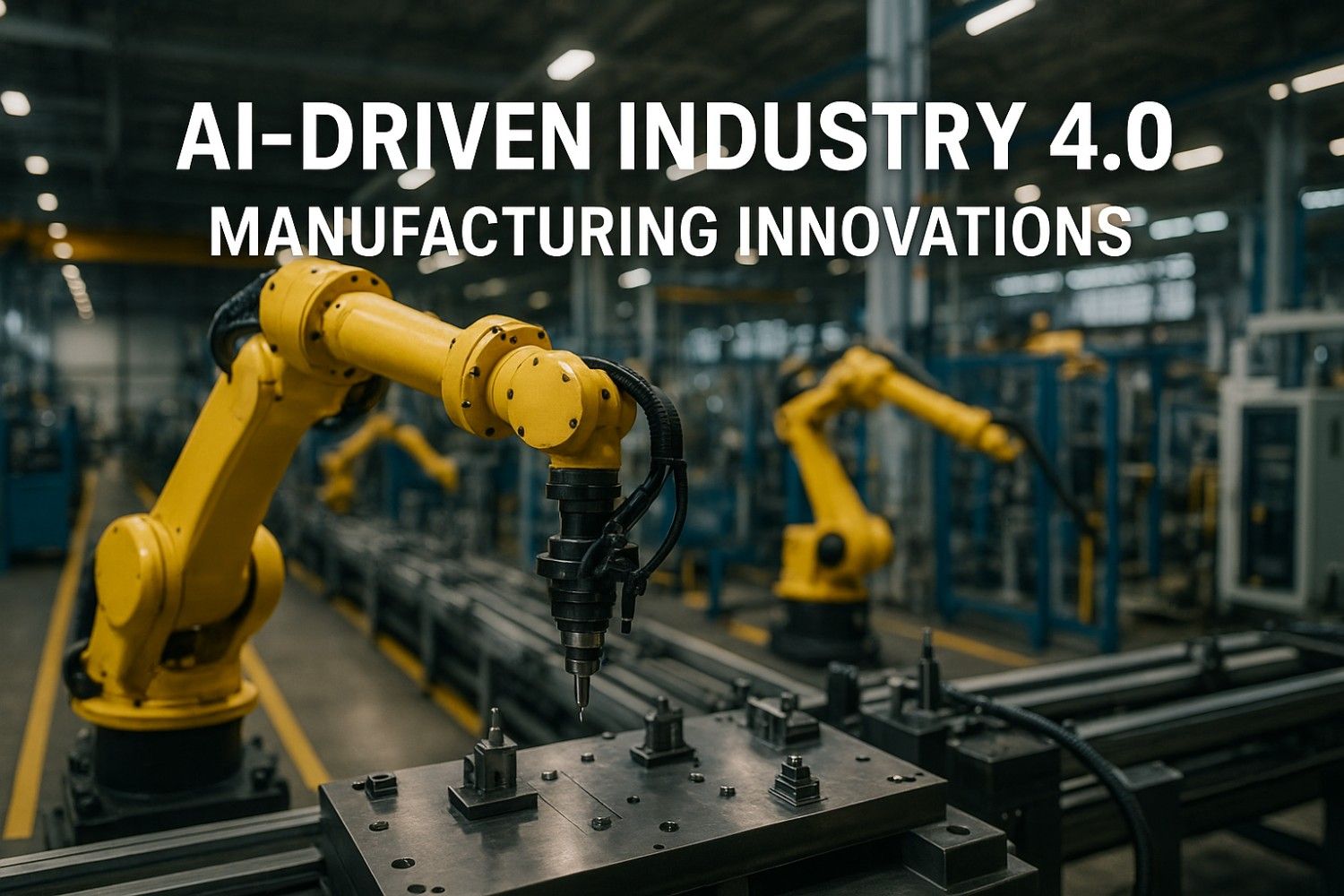
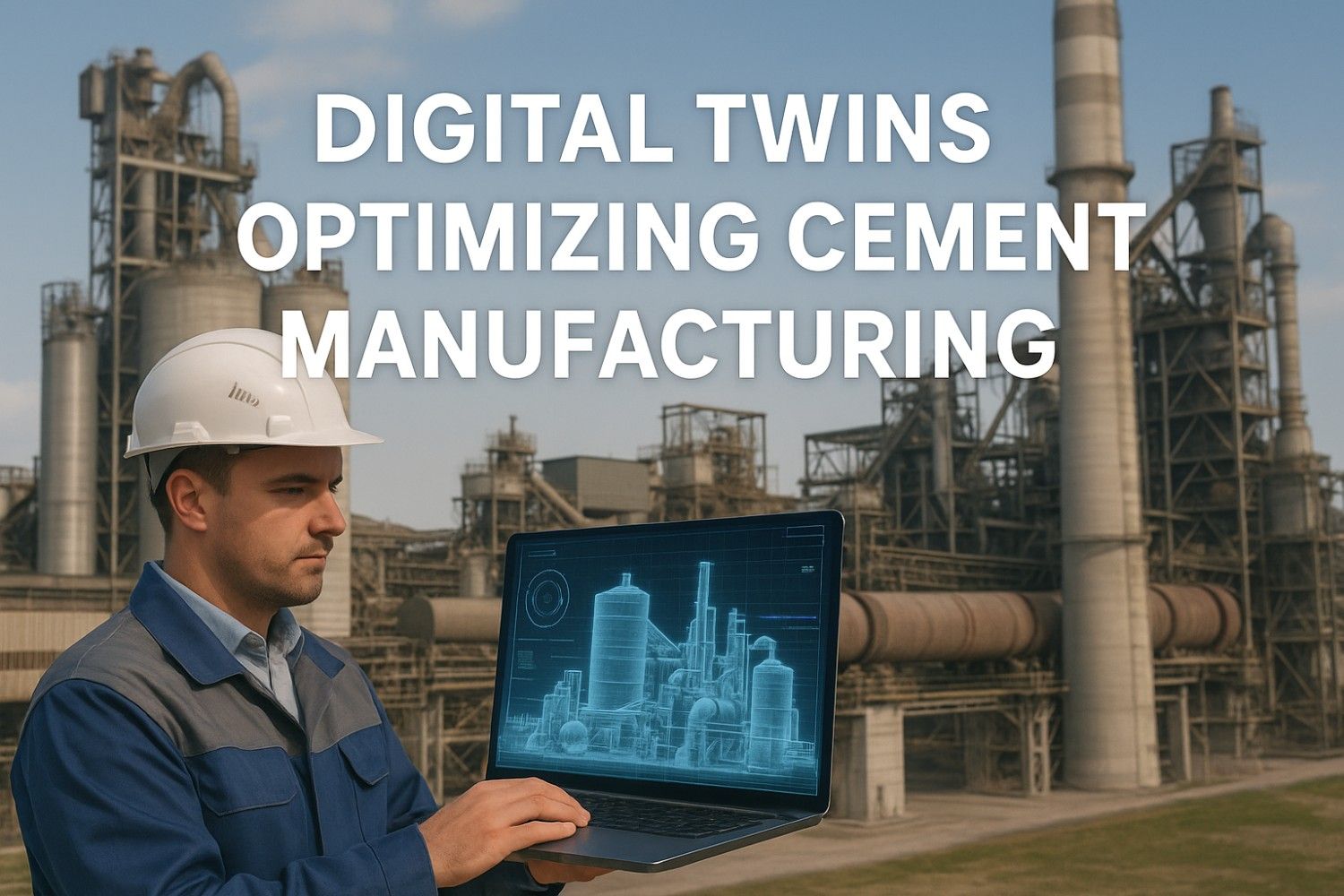
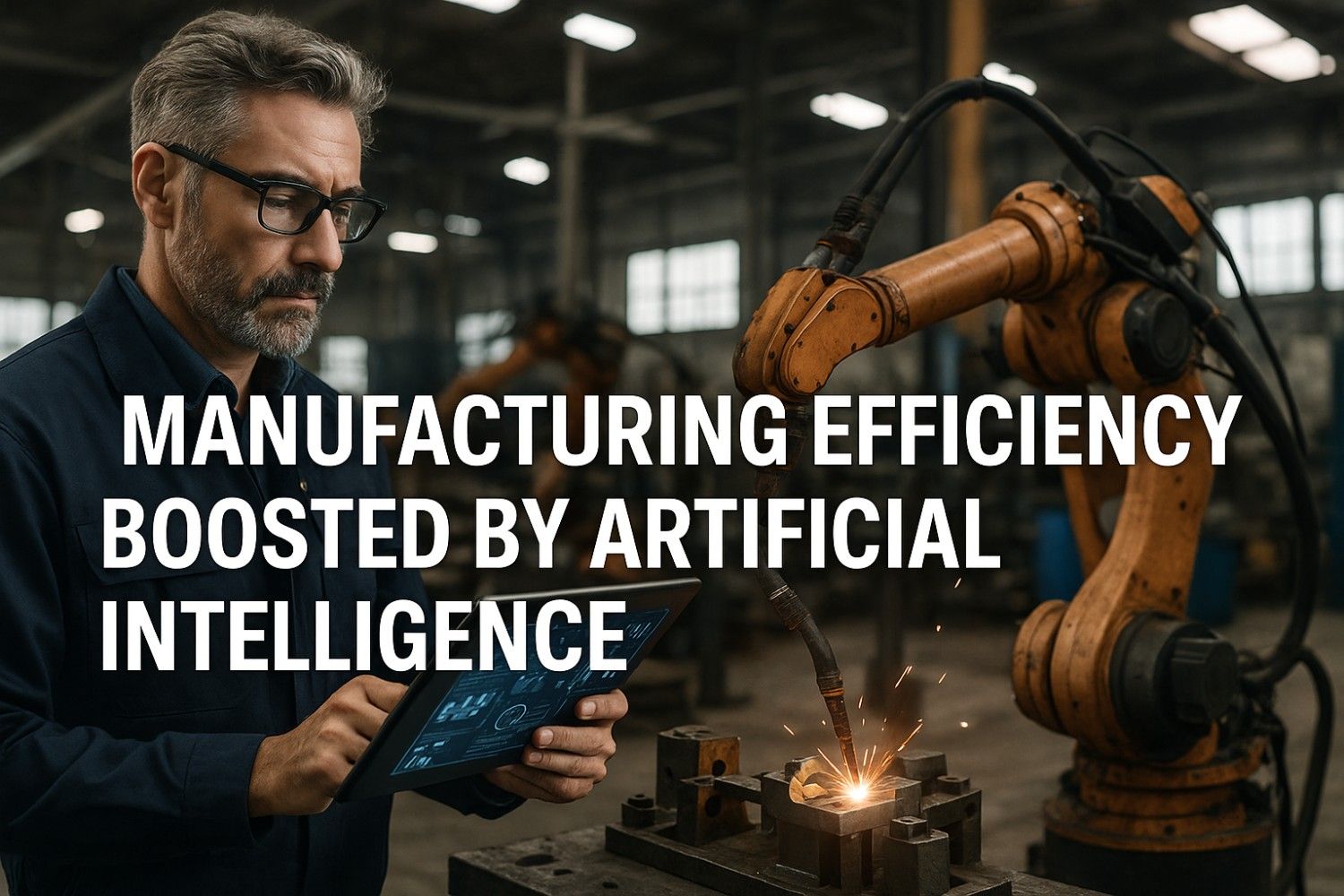
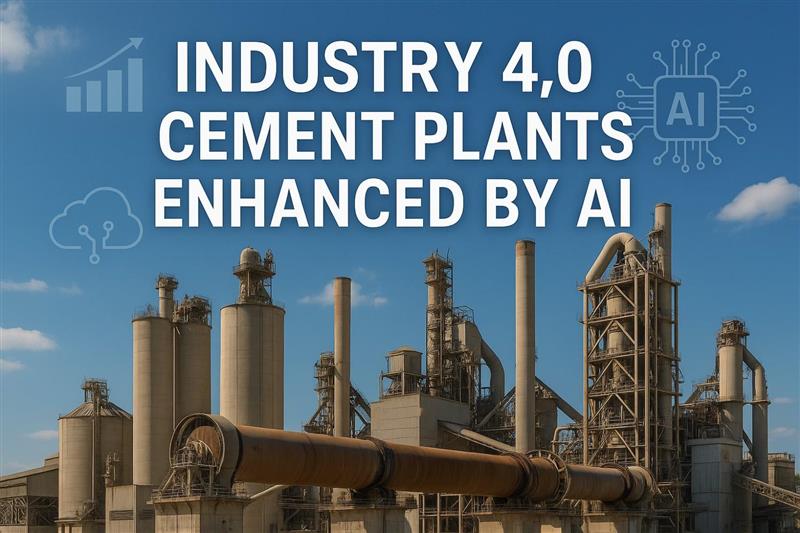
.jpeg)
.jpeg)
